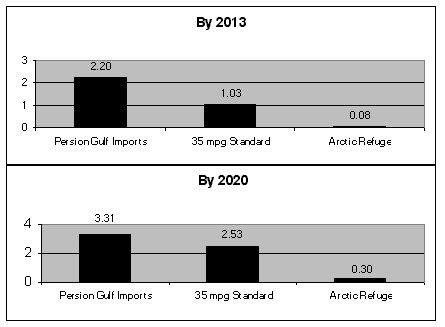more
information > protecting wild places
Protecting America's Wild Places
Rushing
to drill the last drop of oil and gas from our public lands,
national monuments and forests threatens our last-remaining
special places and moves us backward, not forward, towards a
clean energy future. Already, plans to drill more than 100,000
new wells are moving forward, threatening to overrun special
places in the West with a spider web of roads, pipelines, well
pads and transmission lines. Western communities will be left
to deal with the effects of this rampant drilling, which
threatens drinking water sources and impinges on private
property rights.
However,
the administration and industry allies in Congress are working
to open up the few special places that remain closed to
drilling and to unravel already limited environmental
safeguards that protect wildlife, such as the grizzly bear,
and keep drinking water sources clean. Instead we should
protect our Western lands. That means saying no to drilling in
our special places and enacting common sense provisions to
protect wildlife and scarce water supplies where drilling is
allowed.
Energy
and Land Fact Sheets:
#1: Oppose
Amendments to Roll Back Protections for Fish and Wildlife,
Water and Fragile Sites on America’s Public
Lands
#2: Oppose
Amendments to Give Authority Over America’s Public Lands to
Some State Commissions
#3: Oppose
Amendments to Open Up Protected Areas on Public Lands to Oil
and Gas Drilling
#4: Oppose
Amendments to Exempt the Oil and Gas Industry Practice of
Hydraulic Fracturing from the Safe Drinking Water
Act
#5: Oppose
Amendments to Erode Important Environmental Protections for
our Air, Water and Lands
#6: Oppose
Amendments to Strip National Forests and Public Lands of
Environmental Safeguards
Protecting The Arctic Refuge
Drilling in
sensitive areas such as the Arctic National Wildlife Refuge
would do virtually nothing to reduce America’s dependence on
foreign oil. In contrast, increasing fuel economy standards
would have far-reaching benefits for our energy
security.
- The
U.S. Geological Survey estimates that there are only six
months worth of economically recoverable oil in the Arctic
Refuge, which would not be available for at least ten
years.
- The
Arctic Refuge would reduce U.S. oil imports by only two
percent—from 64 percent to 62 percent of total oil
consumption in 2020.
- By
2017, the cumulative oil savings of a 35 mpg fuel economy
standard would be greater than the total projected yield
from the Arctic Refuge over its 50-year lifetime.

U.S. Oil Imports and Options for
Decreasing Dependence (millions of barrels of oil per
day)